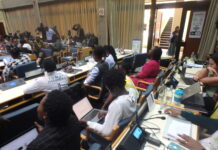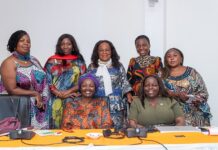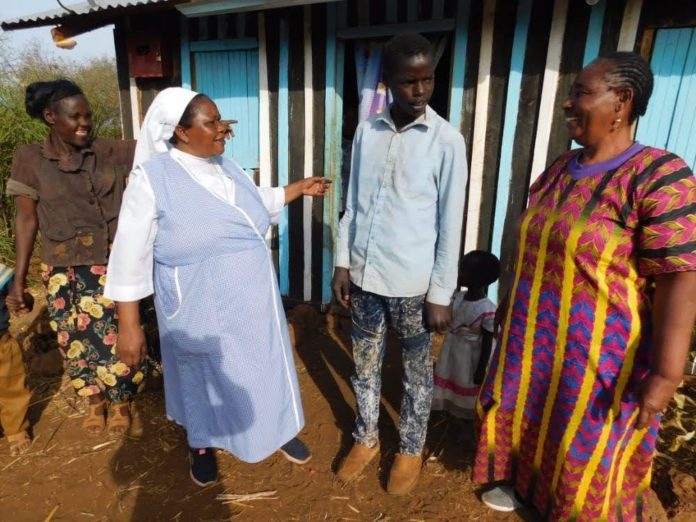
By Jayne Rose Gacheri
Meru County, Kenya: For sixteen days between November 25 and December 10, the world has been “painted orange in a campaign dubbed “Orange the World”, the theme for this year’s 16 days of Activism against Gender-Based Violence.
The colour orange symbolizes a brighter future, free of Gender-Based Violence (GBV).
Globally, women perform the bulk of unpaid care work (more than 75 percent) in households.
Their lack of “performing” has led to GBV.
However, in eliminating GBV, there is a need to address the issue of unpaid care work, which in most instances is synonymous with GBV. With little awareness created to educate communities on the need to treat women and girls with decorum in matters GBV, equality, and unpaid care work along with other gender-related challenges, the situation is dire.
“Meal preparation, cooking, cleaning, grocery shopping, home maintenance, child, husband, elderly, sick and abled differently care among other household services have all been designated to women and girls.
Many times, this has led to conflict in many households,” says Rael Kairithia, a GBV champion based in Igembe South sub-county, Meru.
Kairithia says many GBV cases (they are rampant) in the region are blamed on women for not ‘performing their obligations such as cooking and washing for their husbands and being too tired to give their husbands attention.
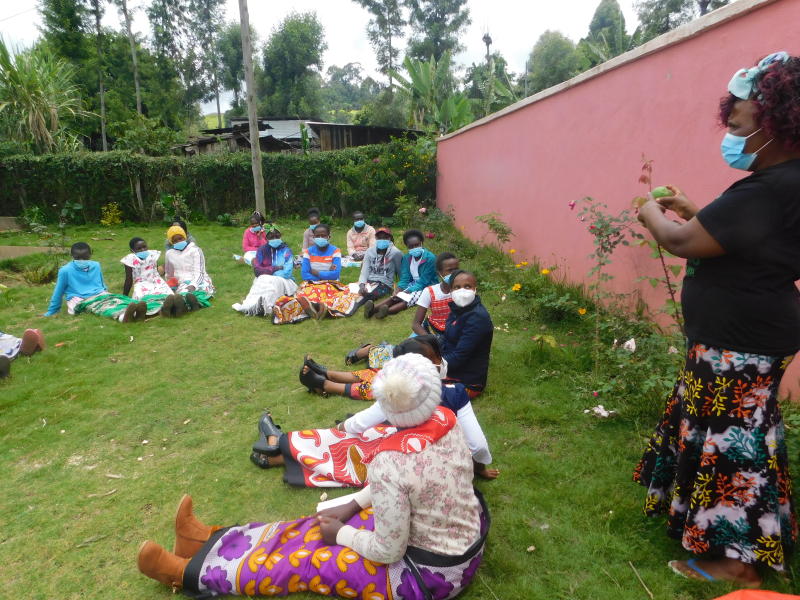
Grandmothers and unpaid care work
In parts of Meru County, the issue of unpaid care work is overwhelming. According to reports from Crew, an NGO that focuses on GBV in the region, many cases are connected to unpaid care work and absentee fathers.
“For instance, because teenage pregnancy is high in the region, many girls and women suffer GBV when they seek child support,” says George Meme an officer with CREW. He adds that faced with this, many mothers opt to go and look for work, leaving their children under the care of their grandmothers. Meme says this is a heavy burden, as the grandmothers devote their time to “taking care of a family a second time in their old age leading to a high level of poverty and equality gaps in the region.
In the driest parts of Athwana sub-location, Meru County, we find Sister Winfred Nkanya of the Jesus-Mary-Joseph institution overwhelmed with her “motherly duties”. She explains that she takes care of more than 87 differently-abled persons, a small proportion of the more than 200 cases in the sub-county.
“This is not just a matter of unpaid care work, but a matter of life and death – no one knows the pain of a child than the mother who will give her all to ensure the best for her children, no matter the status,” explains Sister Nkanya.
According to the Catholic nun, taking care of persons with disability is quite a tasking care. Sister Nkanya works with the mothers (and grandmothers) of these children to ensure they have food, shelter, and access to health.
Here, we found mothers with more than two persons with a disability whom they have to take care of, and at the same time perform houses tasks and go to look for employment to sustain their families. Sometimes the consequences of leaving the children unattended have led to death, rape, and injuries,” narrates Sister Nkanya.
She further explains that sometimes the mothers of persons with disability “run away” from these tasking responsibilities because the majority of the fathers disown the families, leaving the burden to aging grandparents.
Kairithia, a GBV Champion who also spearheads other girl and women issues through her Daughters of Zion church-based organization, takes us on a tour of Igembe South, and Tigania West. “Unpaid care work for women and girls is quite alarming as they cannot stay at home and face poverty, absentee fathers, and other distressful situations. These circumstances make them leave home to look for work and a better life,” explains Kairithia.
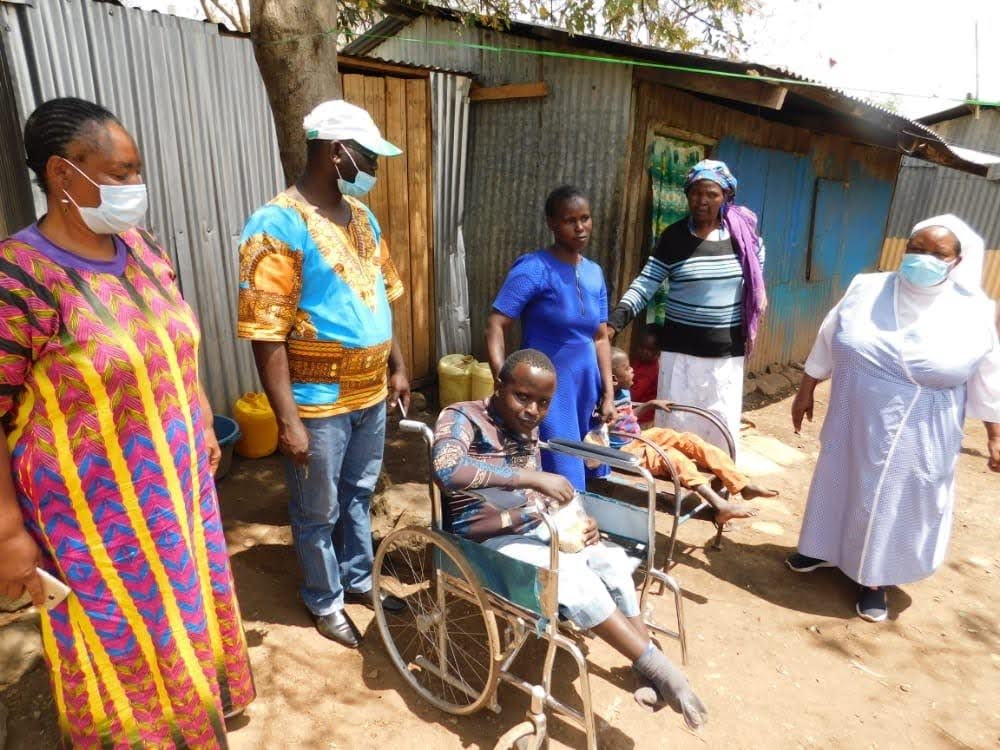
In Tigania West, we find Charity M’aranju, a 72-year-old grandmother taking care of four grandchildren and a great-grandchild, the new addition from her 15-year-old grandchild. M’aranju who should be enjoying her twilight years under the care of her children, finds herself being the caregiver to the grandchildren.
“I do not understand about unpaid care work, but know that I have a responsibility to take care of my grandchildren (childcare, cleaning, cooking, and gardening, and other daily duties,” says the octogenarian. All, she knows is that if she does not, her innocent grandchildren will not have a chance at life. Her husband died two decades ago, though she is skeptical if he would have been of any help as unpaid care work is considered as part of a woman’s job by her society.
Two kilometers further down, we find the scenario at the home of Penina Gathoni is no different from the one at M’aranju’s. Gathoni has just welcomed the birth of a grandchild, Precious Midicha. The baby girl is an addition to the eight-member family. Gathoni wears a far-away look signifying a stressful life.
Whereas the four girls in the family have not completed school, they help with the household tasks, jeopardizing their school performance, while the three boys led by their father have it easy.
The burden of additional responsibilities to look after her grandchild so her daughter can go back to school (thanks to the directive that advocates for back to school for teenage mothers) has just deprived her of time to pursue manual labour to supplement the family’s income.
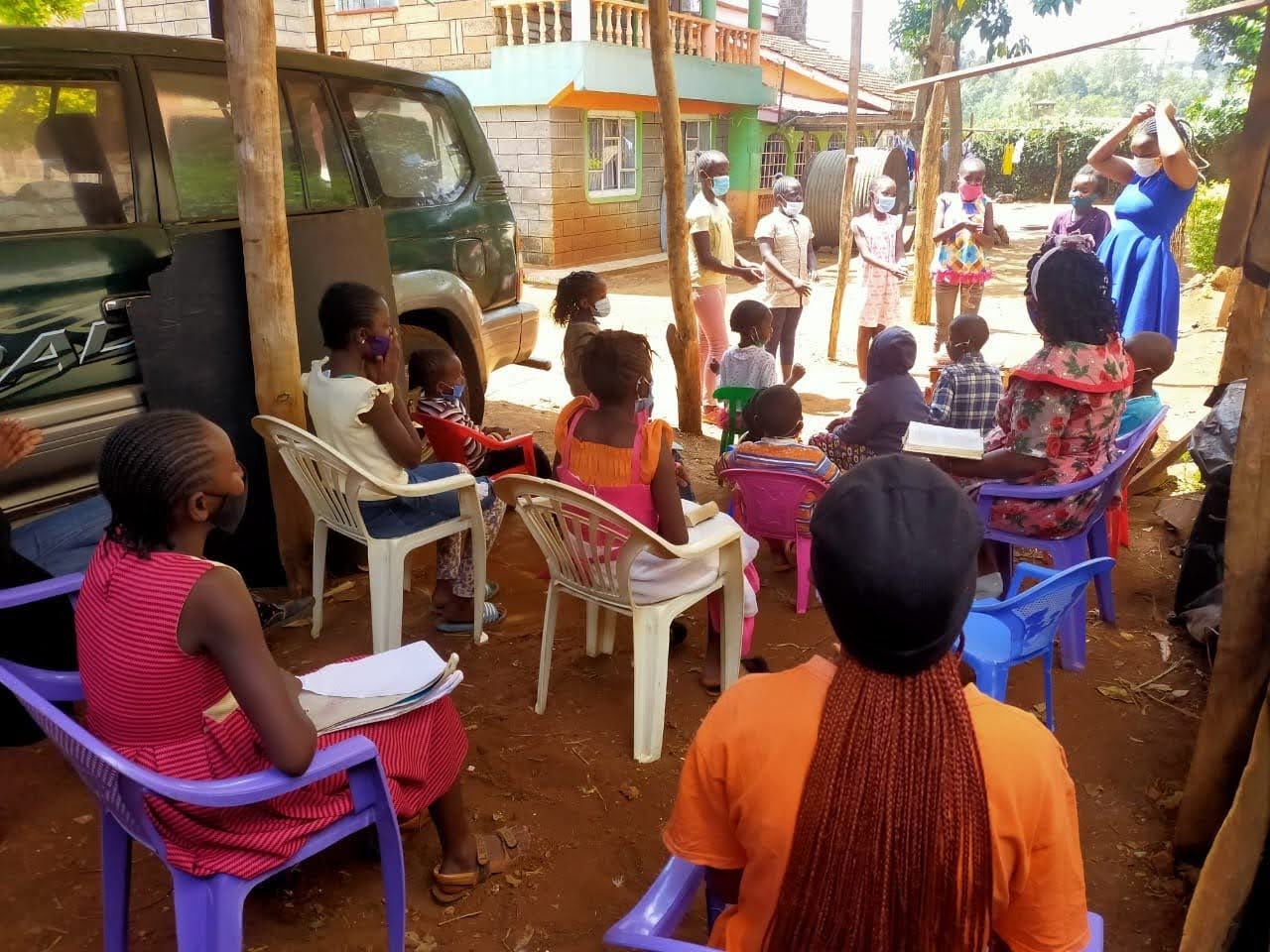
Unpacking unpaid work care differently
However, the situation in Tigania and Igembe has a bright side. “Through training and events, we are working with men through the church, boda-boda, and Miraa organizations to create awareness that women and girls are part of the family and need to be treated with decorum,” says Kairithia.
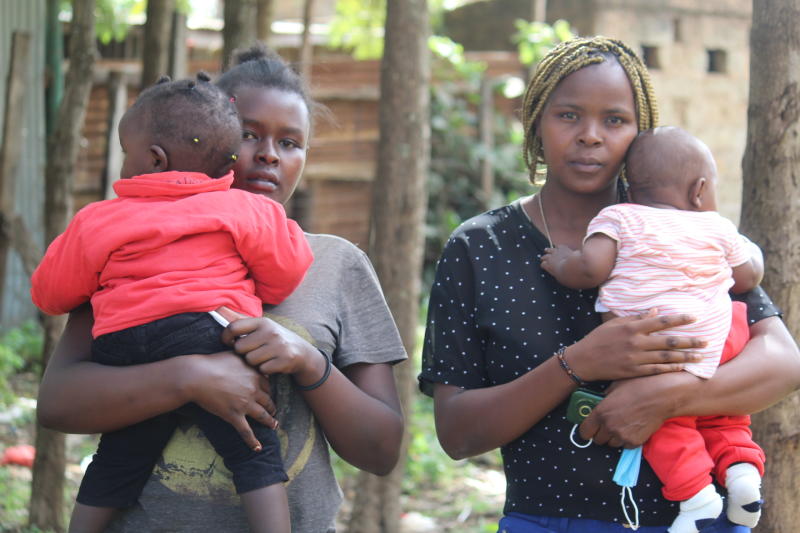
In Central Imenti, though the story on unpaid care work is the same, the situation is different. At a homestead in Githongo, we encounter teacher Jane Mugambi, a passionate believer in girls and women. She advocates for equality for all, no GBV in every homestead, no girl should be pregnant before completing school.
Since Covid-19, for the past two years, Teacher Jane has mentored more than one hundred girls focusing on equality for all in sharing responsibilities such as cooking, fetching water, gardening, cleaning, washing, and others.
“I train the girls to use tactics when indulging the boys and young men to ask for assistance, and this has worked, lessening the burden of girls singling performing responsibilities that has impacted on their school performance and general welfare.
When mentoring couples, Teacher Jane encourages them to share household tasks so that the women and girls in the family are not overburdened and fail to pursue their potential outside of household responsibilities.
“I remind the couples that for better for worse also involves sharing of tasks as this translates to a healthy family life, free of stress, depression, mental illness and translates to better performance and delivery of the essential household tasks,” says teacher Jane.
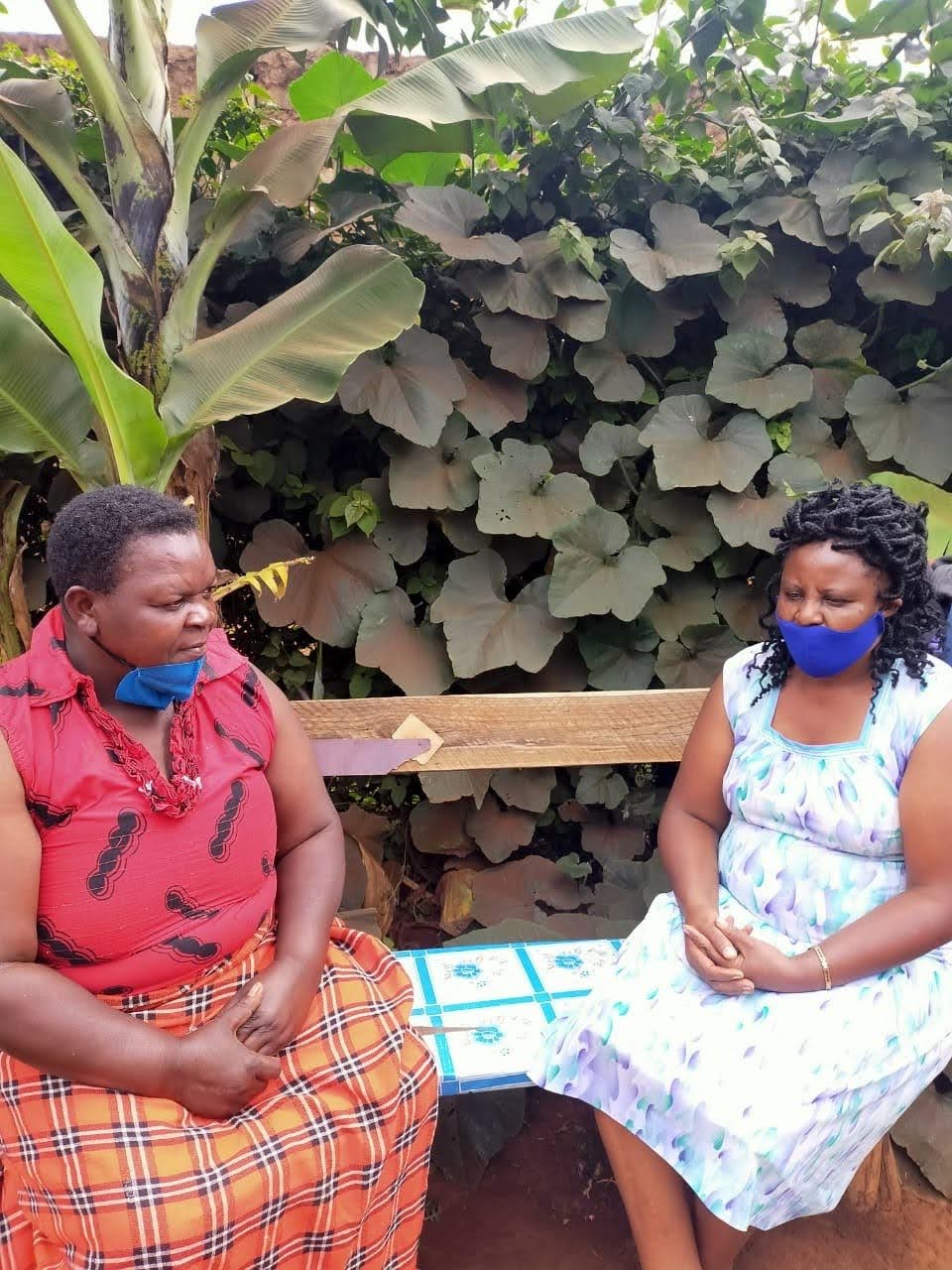
Lucy Mutuma, a secondary school headteacher, uses a replica of Teacher Mugambi’s model to influence the boy and girl child in Ntima location of Imenti Central. With the local administration’s permission, she mentors the boy and the girl child on the importance of nurturing and supporting each other for a successful future.
“In many communities, cooking, fetching water or firewood, cleaning, washing, and other tasks are the responsibilities of girls and women,” says Lucy, adding that she collaborates with like-minded leaders, the Church, and local communities to create awareness to change the narrative.
Though these stories indicate that the issue of GBV and unpaid care work are still prevalent in our society, they too serve as indicators of the need to create awareness at the grassroots level. The Media should take up the task of highlighting both areas of concern and tell the success stories. With this, it is just a matter of time for the world to be coloured orange.

